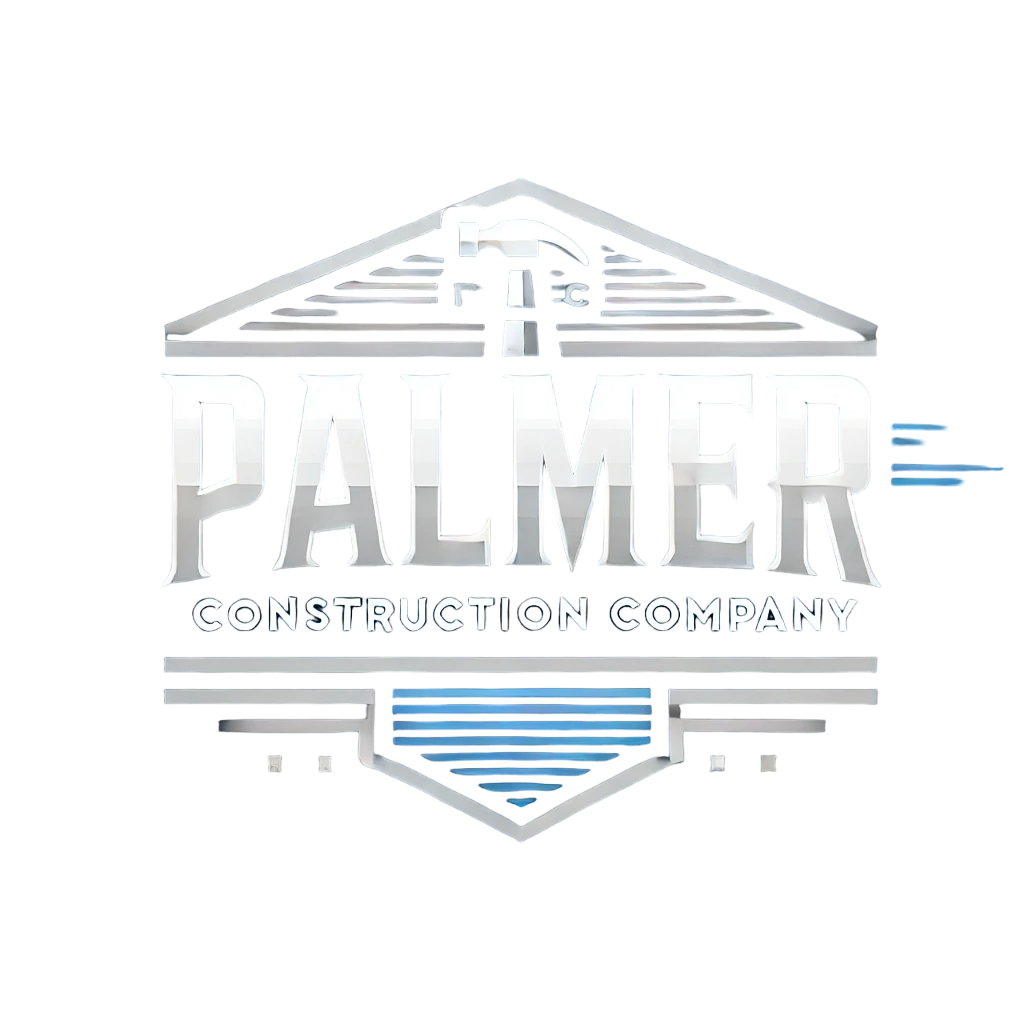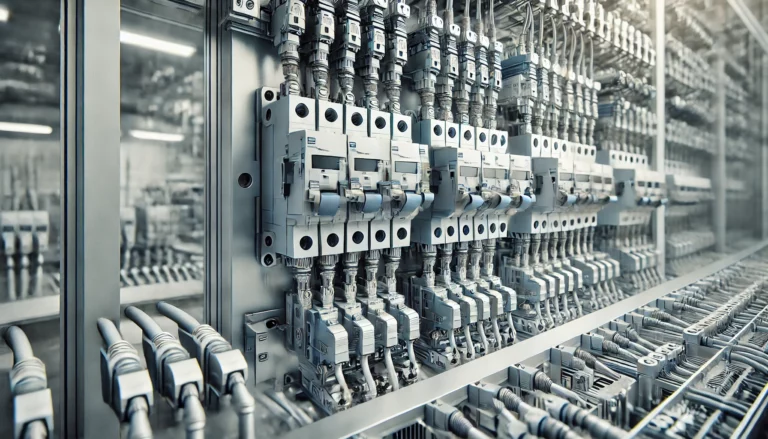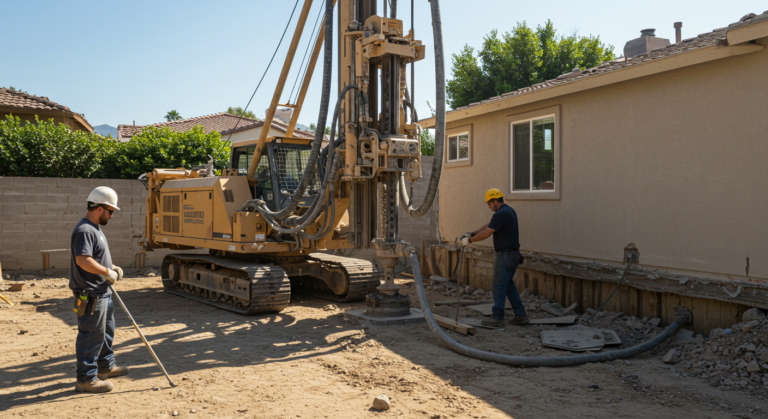Understanding Aluminum Busbar Manufacturing
Aluminum busbars are essential components in electrical systems, providing a reliable means to distribute electrical power. At AP Precision, we understand the significance of using high-quality materials such as aluminum alloys and anodized aluminum to enhance conductivity and durability. Our expertise allows us to engineer busbars that not only meet industry standards but also offer innovative solutions for various applications. By utilizing advanced techniques in the manufacturing process, we ensure that each aluminum conductor maintains optimal performance under demanding conditions. This commitment to quality and precision is the foundation of our approach in fabricating top-quality electrical busbars tailored to our clients’ specific needs.
Inside AP Precision: How We Engineer Top-Quality Aluminum Busbars | Definition and Importance of Aluminum Busbars
Aluminum busbars are crucial components in electrical systems, providing a reliable means of conducting electricity while minimizing resistance. Made from high-quality aluminum alloys, such as 6061 aluminum, these buss bars enhance efficiency and performance across various applications. According to aluminum.org, the lightweight nature of aluminum, combined with its excellent electrical conductivity, makes it a preferred choice over alternatives like stainless steel and other steels. Inside AP Precision: How We Engineer Top-Quality Aluminum Busbars, we emphasize the importance of selecting the right aluminum alloys to ensure optimal performance and longevity.
The significance of aluminum busbars extends beyond simple conductivity; they are designed for a range of applications, from power distribution to renewable energy systems. Pure aluminum and specific aluminum alloys offer significant advantages, including resistance to corrosion and mechanical stress. Inside AP Precision: How We Engineer Top-Quality Aluminum Busbars, our focus on quality materials and engineering principles ensures that our bus bars meet the rigorous demands of modern electrical systems, providing reliability and efficiency wherever they are used.
Overview of Standard Aluminum Busbars and Their Applications
Standard aluminum busbars serve as crucial electrical bus conductors in various applications. The design and engineering of these components, as explored in “Inside AP Precision: How We Engineer Top-Quality Aluminum Busbars,” focus on their effectiveness in power distribution systems. Busways equipped with aluminum busbars are favored for their lightweight nature and the ability to handle high currents efficiently. Common applications span across several industries, including aerospace, where precision and reliability are paramount.
Aluminum busbars often face challenges from environmental factors, prompting the need for robust finishes to protect against aluminium oxides. This is especially significant in sectors like manufacturing and energy, where durability is essential. By employing lean manufacturing techniques, AP Precision enhances the reliability of its busbars, ensuring they withstand harsh conditions better than alternatives made from mild steels or stainless steels. Hybrid bus systems increasingly incorporate aluminum busbars to combine efficiency with sustainability, reflecting a growing trend in modern electrical infrastructure.
- Aluminum busbars are lightweight, making them easier to handle and install.
- They can efficiently conduct high currents, leading to improved performance in electrical systems.
- Their applications extend to industries such as construction, automotive, and telecommunications.
- Robust protective finishes are essential to prevent corrosion and degradation over time.
- The use of aluminum busbars can contribute to energy savings and reduce overall operational costs.
- Hybrid bus systems using aluminum are becoming more popular for their sustainable approach.
- Regular maintenance and inspections can enhance the longevity and reliability of aluminum busbars in installations.
Inside AP Precision: Crafting High-Quality Aluminum Busbars
Inside AP Precision: How We Engineer Top-Quality Aluminum Busbars involves a meticulous approach to manufacturing that prioritizes quality control and precision. Our engineers utilize advanced CNC machining techniques to ensure every busbar meets strict technical specifications. The versatility of aluminum makes it ideal for various applications, including the automotive industry and transportation systems, where lightweight and efficient components are crucial. Our commitment to metallurgy ensures that the aluminum busbars we produce outperform those made from medium carbon steel, maintaining accuracy and durability under demanding conditions, particularly in heavy machinery environments. This attention to detail solidifies our reputation as leaders in the field of aluminum busbar manufacturing.
| Busbar Type | Dimensions (mm) | Material Grade | Applications | Features |
|---|---|---|---|---|
| Standard Aluminum Busbar | 50 x 10 | 6061-T6 | Automotive, Electrical | Corrosion Resistant, Lightweight |
| High-Current Busbar | 100 x 20 | 6063-T5 | Transportation, Industrial | High Conductivity, Durable |
| Customized Aluminum Busbar | Varies by Design | Alloy 1350 | Heavy Machinery | Tailored Dimensions, High Strength |
| Flexible Aluminum Busbar | 50 x 5 | 1060 | Renewable Energy | Flexible Design, Easy Installation |
Our Manufacturing Process Explained
At AP Precision, the manufacturing process of our high-quality aluminum busbars begins with selecting premium-grade materials, ensuring optimal conductivity and performance. Utilizing advanced milling machines, skilled technicians precisely shape the aluminum, adhering to design specifications for both standard aluminum busbars and innovative aluminum busbars. This attention to detail is crucial to produce top-quality aluminum bus that meets the rigorous demands of various applications, including those in automotive vehicles and industrial settings.
After the initial shaping, we implement stringent quality control measures at every stage of production. Each piece undergoes rigorous testing to verify its durability and efficiency. The result is a high aluminum busbar designed to withstand extreme conditions while delivering superior performance. Our commitment to excellence reveals itself through the creation of busbars—aluminum products that reflect the high standards set by AP Precision.
Quality Control Measures in Production
At AP Precision, the quality of our aluminum busbars is paramount. Our production process incorporates rigorous quality control measures at every stage, ensuring that each aluminum busbar meets high standards of reliability. From the selection of raw materials to the final inspection, our team is committed to delivering quality aluminum bus bars tailored to diverse applications. These metal busbars not only exhibit exceptional conductivity but also integrate seamlessly during installation, reinforcing our reputation for producing dependable aluminum busbars.
Our quality assurance team conducts thorough testing to identify any potential defects in the aluminum busbar aluminum construction. This includes evaluating the performance of the aluminum busbars under various stress conditions, ensuring durability and longevity. Each quality check is designed to uphold the values outlined in “Inside AP Precision: How We Engineer Top-Quality Aluminum Busbars.” By implementing these stringent measures, we provide customers with robust and efficient solutions for their aluminum busbar applications, proving vital for industries that rely on exceptional electrical efficiency and safety.
Diverse Aluminum Busbar Options at AP Precision
AP Precision specializes in delivering a comprehensive range of aluminum busbars designed to meet diverse aluminum busbar needs across various sectors. Our approach, detailed in “Inside AP Precision: How We Engineer Top-Quality Aluminum Busbars,” emphasizes the importance of selecting the right aluminum busbar material to ensure optimal performance. We offer a variety of custom aluminum busbars, catering to specific requirements that enhance the functionality of aluminum busbar systems. As a leader in quality busbar manufacturing, AP Precision provides lightweight aluminum busbars that excel in efficiency while also demonstrating durability. Each type of aluminum bus busbar is tailored to fit various aluminum busbar applications, establishing us as a top aluminum bus manufacturer in the industry.
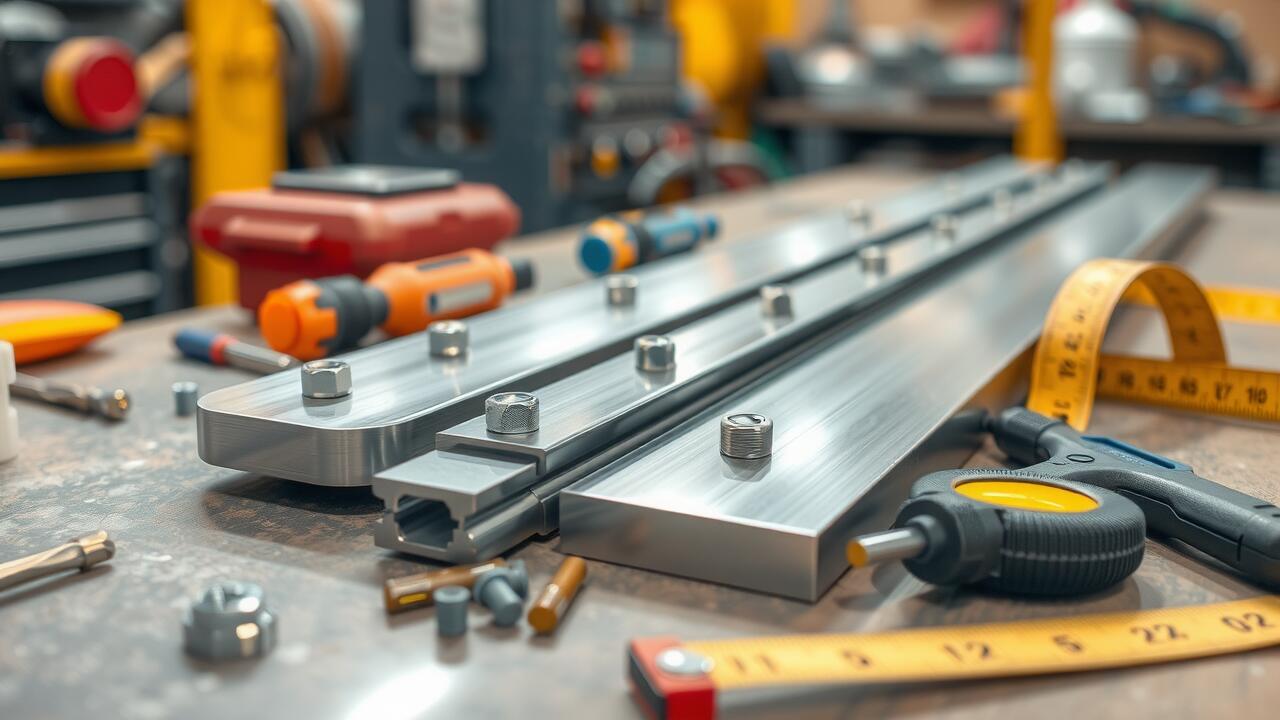
Comparison of Different Aluminum c
Aluminum busbars come in various materials, each suited for specific applications and environments. At AP Precision, we prioritize high-performance aluminum bus solutions that deliver outstanding electrical conductivity and efficiency. Flat busbar aluminum is a popular choice for many installations due to its compact design and ease of integration. For those looking for an alternative, copper-aluminium busbars combine the benefits of both metals, offering reduced weight and improved electrical properties compared to traditional copper bus bar aluminum options.
Different busbar aluminium buses can meet diverse operational requirements. The versatility of aluminum copper busbars allows for flexible configurations suitable for various industrial applications. Understanding these differences is crucial for effective aluminum busbar installations, ensuring the selected material aligns with performance expectations. Inside AP Precision: How We Engineer Top-Quality Aluminum Busbars focuses on delivering tailored solutions that optimize power distribution while maintaining durability and reliability in demanding settings.
Flexible Aluminum Busbars: Features and Benefits
Flexible aluminum busbars offer remarkable adaptability, making them essential in various electrical applications. These products allow for easier routing in complex installations while maintaining strong conductivity. Inside AP Precision: How We Engineer Top-Quality Aluminum Busbars ensures that our electrical aluminum busbars retain flexibility without sacrificing performance. The lightweight nature of aluminum combined with its excellent conductive properties makes these busbars ideal for diverse power distribution systems.
The benefits of flexible aluminum busbars extend beyond convenience. Their corrosion resistance ensures longevity in various environments, outperforming traditional busbar copper aluminum solutions. As a reliable choice, the bar aluminum bus design facilitates quick assembly and efficient maintenance. Our commitment at Inside AP Precision: How We Engineer Top-Quality Aluminum Busbars guarantees that customers receive innovative solutions tailored to their specific needs, enhancing the overall efficiency of electrical systems.
The Engineering Behind Aluminum Busbar Systems
Inside AP Precision: How We Engineer Top-Quality Aluminum Busbars emphasizes the intricate design and engineering processes crucial for creating efficient and reliable aluminum busbar systems. Key design considerations ensure optimal performance while adhering to stringent standards of busbar manufacturing technology. The versatility of our offerings, including cost-efficient aluminum busbars and custom aluminum bus solutions, allows for tailored applications across various industries. Our commitment to innovative engineering further distinguishes our products, such as copper/aluminum busbar configurations and bar aluminum busbar designs. With meticulous attention to aluminum busbar distribution, AP Precision stands out in supplying aluminium busbars that meet the diverse needs of our clients.
- Advanced engineering techniques ensure the durability and longevity of aluminum busbar systems.
- Customization options allow for specific configurations to fit unique project requirements.
- Continuous testing and quality assurance processes are in place to uphold performance standards.
- Collaboration with clients during the design phase enhances product suitability for various applications.
- Use of eco-friendly materials and processes contributes to sustainability efforts in manufacturing.
- Expertise in various industries ensures our solutions meet specific regulatory requirements.
- Ongoing research and development keep our aluminum busbar systems at the forefront of technology.
Key Design Considerations for Optimal Performance
Designing aluminum busbars requires a comprehensive understanding of material properties and application requirements. Inside AP Precision: How We Engineer Top-Quality Aluminum Busbars highlights the need to consider factors such as electrical conductivity, weight, and the overall aluminum busbars cost. Selecting the right aluminum bus supplier can influence the quality significantly, as it ensures that the chosen aluminum bars busbar meet the rigorous standards needed for optimal performance. The corrosion resistance of aluminum busbar is particularly important in various environments, emphasizing the necessity of reliable materials for long-lasting functionality.
Engineers must also account for customization options when crafting wire busbar aluminum systems. Tailoring the size and shape of aluminum busbars can enhance their effectiveness in specific applications, whether in commercial or industrial settings. The ability to incorporate aluminum bus into existing systems ensures adaptability and efficiency. Furthermore, understanding the differences between stainless steel busbars and aluminum busbars can guide manufacturers in selecting the most appropriate solutions for their needs. Such considerations ultimately lead to superior design choices that maximize the benefits of aluminum bus bars.
Customization Opportunities in Busbar Systems
Customization plays a vital role in the design of busbar systems at AP Precision. With a wide range of aluminum bus products available, clients can select tailored solutions that meet specific operational needs. This article explores the various customization options available during the busbar manufacturing process, from the choice between aluminum copper bus combinations to high-discharge aluminum busbars, ensuring optimal performance for applications like electrical bus aluminum setups.
Flexibility in design allows for unique configurations that enhance efficiency and reliability in power distribution systems. Our team works closely with clients to create specific bus bus aluminum layouts that suit their unique requirements. Whether it’s integrating copper aluminum bus elements or optimizing aluminum bus systems, our commitment to quality and performance shines through. Inside AP Precision: How We Engineer Top-Quality Aluminum Busbars reflects our dedication to delivering custom solutions tailored for diverse industrial applications.
Performance Advantages of Using Aluminum Busbars
The engineering of aluminum busbars at AP Precision presents significant performance advantages that set them apart from traditional bus copper aluminum options. While copper busbars are often favored for their conductivity, aluminum bus cost and weight advantages make aluminum an increasingly popular choice, particularly in industrial busbar fabrication. The right busbar material can enhance efficiency while reducing the overall weight of the system, which plays a crucial role in applications that demand robust yet lightweight solutions. Proper busbar construction and the use of advanced busbar processing machines ensure that every unit maintains high durability and performance standards. Inside AP Precision: How We Engineer Top-Quality Aluminum Busbars focuses on these aspects, demonstrating that aluminum options can effectively replace heavier copper aluminium bus configurations and provide a sustainable alternative to traditional bar steel bus systems.
| Feature | Aluminum Busbars | Copper Busbars | Benefits |
|---|---|---|---|
| Weight | Lightweight | Heavier | Reduce installation costs and improve handling |
| Cost | More economical | Higher material cost | Lower overall project expenses |
| Corrosion Resistance | Good resistance | Requires protective coatings | Less maintenance and longer lifespan |
| Conductivity | Lower than copper | High conductivity | Innovative designs can mitigate conductivity concerns |
| Sustainability | Recyclable material | Less sustainable | Environmentally friendly option |
Weight and Efficiency Benefits
Aluminum busbars provide significant weight advantages compared to traditional bar steel busbars. This reduction in weight enhances overall system efficiency, making them ideal for applications like aluminum bus battery systems where portability and installation flexibility are crucial. The lower density of aluminum allows for a lightweight structure without sacrificing strength, which is especially beneficial for designs involving thicker busbars or u-shaped busbars. Inside AP Precision: How We Engineer Top-Quality Aluminum Busbars ensures that our high-performance busbars optimize weight while maintaining structural integrity.
Efficiency is further enhanced by the superior conductivity of aluminum bus material in comparison to alternatives like bar busbar copper. These pre-coated busbars facilitate better heat dissipation, contributing to enhanced performance over time. Fastened busbars created using advanced manufacturing techniques ensure reliability in various settings. Through careful busbar measurement and thoughtful engineering, Inside AP Precision: How We Engineer Top-Quality Aluminum Busbars guarantees that each system maximizes electrical efficiency while minimizing weight-related challenges.
Durability and Longevity of Aluminum Busbars
Aluminum busbars crafted at AP Precision are renowned for their impressive durability and longevity. The engineering process emphasizes high-quality bus bar construction, integrating high-precision equipment to create robust aluminum components. Unlike traditional busbar copper products, our aluminum terminals offer a lightweight yet highly resilient alternative, making them ideal for various applications. The combination busbars we provide ensure that clients receive chosen busbars tailored to withstand substantial wear and tear while maintaining optimal performance over time.
The long lifespan of our aluminum busbars is further enhanced by their resistance to corrosion and environmental stressors. With options available for both homemade busbar solutions and specialized bar copper busbar configurations, customers benefit from a versatile array of products. The high aluminium aluminum composition utilized in our designs contributes to the impressive strength and reliability often sought in busbar wire copper connections. Clients can trust that our offerings not only meet but exceed expectations for durability, ensuring that their investment remains sound for years to come.
Applications of Aluminum Busbars in Various Industries
The versatility of aluminum busbars plays a crucial role across a range of industries, showcasing their importance in efficient electrical distribution. Inside AP Precision: How We Engineer Top-Quality Aluminum Busbars focuses on addressing the aluminum bar question and optimizing various busbar production methods. With unique busbar types designed for specific applications, these systems allow for the effective conduction of electricity while minimizing energy loss. Features like robust busbar joints enhance reliability in high-demand situations, and the use of CNC busbar machines ensures precision in manufacturing. Whether for a bar aluminium aluminium setup or a comparison with copper bus bars, the advantages of aluminum are evident, providing long-lasting solutions with lower weight and high efficiency.
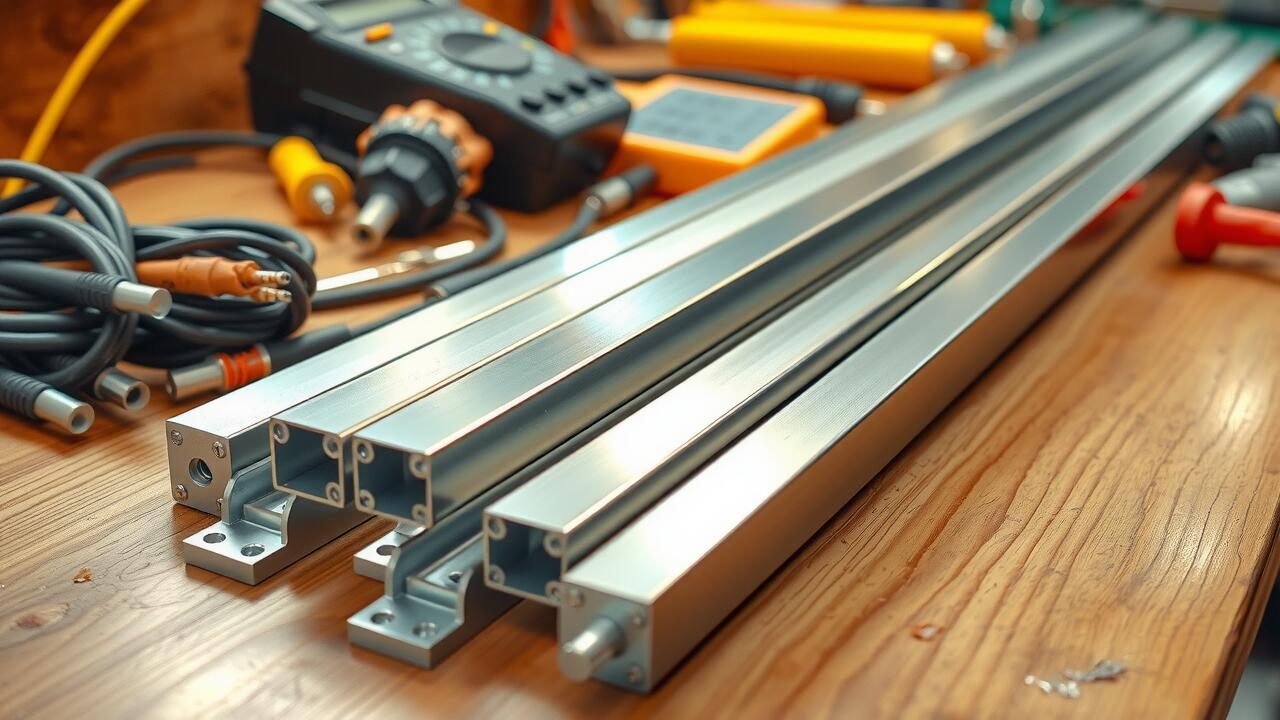
Conclusion
Inside AP Precision: How We Engineer Top-Quality Aluminum Busbars emphasizes the significance of high-quality manufacturing in the development of effective electrical systems. The range of busbar fabrication services provided includes various materials and designs, catering to specific industry needs. Standard options such as bus copper bar and flat busbar demonstrate versatility, while advanced solutions like hybrid busbars joints highlight innovation. The distinct advantages of aluminum bars aluminum in terms of weight and efficiency make them a popular choice, alongside the durability found in copper home busbar applications. Each element of our process contributes to crafting busbars that excel in performance and longevity, reinforcing our commitment at AP Precision to engineering excellence.
FAQS
What are the benefits of using aluminum busbars in electrical applications, particularly flexible aluminum options?
Aluminum busbars, including advanced aluminum busbar options, offer excellent conductivity, making them reliable for connecting aluminum conductors. In contrast to other materials, the anodized aluminum used in flexible aluminum busbars enhances corrosion resistance, further increasing their lifespan and performance. Additionally, the versatility of aluminum busbar applications makes them a preferred choice for various electrical busbars aluminum systems, delivering both efficiency and effectiveness.
How do anodized aluminium busbars compare to standard aluminium busbars in terms of performance and reliability?
Anodized aluminium busbars offer enhanced corrosion resistance compared to standard aluminium busbars, making them a reliable choice for various aluminium busbars applications. By utilizing anodized finishes, these aluminum busbars can withstand harsh environmental conditions, ensuring longevity and effectiveness as a bus bar aluminum component. Furthermore, the use of anodized aluminium can improve the aesthetic appeal of aluminium alloys while maintaining the excellent conductivity of aluminium conductors and aluminium wire in electrical systems. Overall, anodized aluminium busbars are a leading option when it comes to performance in an aluminum busbar bus setup.
How does the use of flexible aluminum busbars contribute to the efficiency of electrical systems compared to traditional options?
The use of flexible aluminum busbars can significantly enhance the efficiency of electrical systems. These busbars are made of aluminum, which is known for its lightweight properties and excellent conductivity. Unlike traditional rigid options, flexible aluminum busbars allow for easier installation and adaptability in tight spaces. Additionally, they can reduce the overall weight of the electrical system, which is crucial for reducing load and improving energy efficiency. Reliable aluminum busbars like these minimize the risk of corrosion and increase the lifespan of electrical components, ensuring that systems can handle high power loads without the disadvantages seen in other materials like busbar steel aluminum. Flexible aluminum busbars are leading the way in modern electrical applications due to their performance and reliability, making them a smart choice for many industries.
How do flexible aluminum busbars enhance the performance of electrical systems that utilize aluminum busbars, and what advantages do these designs offer in comparison to traditional bus options?
Flexible aluminum busbars provide several advantages within electrical systems, particularly because aluminum can be manipulated into diverse shapes, facilitating better integration into various layouts. The use of aluminum wire in these flexible designs not only allows for streamlined connections but also reduces the overall weight of the assembly, leading to improved handling during installation. Furthermore, high busbar aluminum ensures that these flexible options can manage significant loads, making them a leading choice for modern electrical applications. Compared to traditional bus options, flexible aluminum busbars exhibit enhanced stress distribution, corrosion resistance, and overall performance, contributing to more efficient power transfer throughout the electrical busbar aluminum system. Therefore, they represent a smart choice—balancing cost and functionality while delivering durable, reliable options for energy distribution in various settings.
How do the characteristics of busbar-flexible aluminum influence the overall design and functionality of aluminum busbar systems in modern electrical applications?
The characteristics of busbar-flexible aluminum significantly enhance the design and functionality of aluminum busbar systems, making them a leading choice for innovative electrical applications. Flexible aluminum allows for easier installation and integration into complex layouts, promoting better performance across aluminum busbar applications. Additionally, busbars aluminum products demonstrate superior adaptability and resilience compared to traditional solid aluminum busbar configurations, further showcasing the advantages of using aluminum busbar systems in various environments.
How do modern designs of aluminum busbars integrate with electrical systems to improve efficiency and reliability in bus applications?
Modern designs of aluminum busbars are engineered to enhance both efficiency and reliability in bus applications, utilizing innovative materials and manufacturing processes. These advanced aluminum busbar systems are essential for reducing energy losses and ensuring optimal power distribution. As leading aluminum busbar solutions, they outperform traditional metal busbar options, making them ideal for contemporary electric power systems. Additionally, features such as improved corrosion resistance and lightweight construction further contribute to the effective performance of aluminum busbars in various applications.
What innovations in aluminum busbar design can enhance the performance of modern electrical systems using aluminum busbars?
Innovations in aluminum busbar design, such as improved manufacturing techniques and corrosion-resistant coatings, can significantly enhance the performance of modern electrical systems. These advancements allow for more efficient power distribution, reduced electrical losses, and better thermal management when using aluminum busbars. Additionally, integrating aluminum busbar features with smart technology can lead to increased monitoring capabilities and reliability, addressing the growing needs of contemporary electrical applications. Overall, selecting the right aluminium busbar can greatly impact the effectiveness of bus systems in various environments.
How do aluminum busbars support energy distribution in various electrical applications, and what advantages do they offer over traditional bus systems?
Aluminum busbars play a crucial role in energy distribution by providing a lightweight, corrosion-resistant option for effective power management. Compared to traditional bus systems, aluminum busbars are not only cost-effective but also allow for easier handling and installation due to their lower weight. Moreover, aluminum busbars exhibit excellent conductivity, making them an ideal choice over copper, especially in applications needing substantial electrical flow. The use of aluminum in bus systems enhances overall efficiency while reducing the risk of overheating, thus making aluminum busbars a preferred choice in modern electrical infrastructure.
How do aluminum busbars play a role in the overall efficiency of electrical systems that utilize bus components?
Aluminum busbars are crucial for enhancing the efficiency of electrical systems by providing a lightweight and cost-effective solution for power distribution. Their excellent conductivity makes aluminum busbars an ideal choice for reducing energy losses, while their corrosion resistance increases the longevity of these bus components. Integrating aluminum busbars into a system can significantly improve performance and reduce the overall cost of aluminum busbar manufacturing, making them a preferred option over traditional bus systems.
In what ways can aluminum busbar systems be optimized for better energy distribution in electrical applications?
Optimizing aluminum busbar systems for energy distribution involves enhancing the design and material selection of aluminum busbars to improve their conductivity and reliability. Using high-quality aluminium improves the overall performance of the busbar, ensuring efficient power transfer. Additionally, employing innovative busbar designs that reduce resistance can lead to lower energy losses. By considering factors like thermal management and corrosion resistance, the life span and efficiency of aluminium busbar installations can be extended, making them preferable over traditional bus systems for effective energy distribution.
